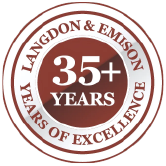Home » About Our Chicago Law Firm » Car accident attorney » Chicago Head On Collision Lawyer


Head-on collisions are overwhelming. It’s difficult to figure out what to do next when you’re still reeling from the accident. The next steps you take are vital to your future claim for damages. Ensure you have the best chance to get maximum compensation by following these steps after a Chicago head-on collision:
Scan your body for injuries and ascertain whether they require emergency medical attention. Determine if it is safe for you to move around. If you feel you are at risk of a spinal or neck injury, it is safer to stay still until emergency services arrive.
Emergency services can determine over the phone whether or not you require medical attention. They will dispatch police and potentially EMTs to assist you. It is imperative that the police are called. While this may seem drastic for a minor accident, many insurance companies require an official police report to file a claim for damages. Police can also collect evidence and determine fault.
Although police are there to get an accurate record of the accident, you should do so as well. This will help refute any inaccurate claims later. Take photos of the damage done to all vehicles. Photograph evidence of weather conditions and anything that may have played a role in the accident. Get the names of everyone on-scene, including the police and witnesses. Collect the name, license, license plate number, and insurance company of the other driver involved. Try to make a point-form list of events to help you remember what happened later.
Many victims don’t feel the impact of their injuries until hours or days after a car accident occurs. Those are vital hours that could be spent treating and recovering from the injuries. After a head-on collision, seek medical attention at the emergency room or your family physician.
Get a lawyer involved as soon as possible following the accident. Once you are sure of your health and safety, contact someone who can help you with the claims process. The earlier you involve a lawyer, the more they can do to assist you in gathering evidence, making your claim, liaising with your insurance company, and protecting your rights.
Submit your evidence, a copy of the police report, and your timeline to the insurance company for reimbursement of property damage and injuries. Be sure to keep all receipts for financial damages that you had to pay as a result of the accident.
Once you’ve filed a claim with your insurance company, call your attorney to speak with them about the next steps. They can advise you on how to speak with the police or the other driver’s insurance company. They will help you keep a record of events. A car accident lawyer will assist you in preparing your case for trial and receiving your damages.
If you or a loved one were injured in a Chicago head-on collision, we can help. Call (866) 931-2115 to speak with an expert Langdon & Emison lawyer today.
Our attorneys have assisted victims of car accidents for over 30 years. They will invest in experts to support your claims, handle insurance companies for you, and allow you to focus on your well-being while they work for the money you’re owed. Hiring a Langdon & Emison attorney is no-risk. We don’t get paid until we’ve won your case.
Get a risk-free, no-obligation consultation today.
Head-on collisions occur when two cars driving in opposite directions collide. The force of each driver’s speed doubles the impact of a rear-end or side-impact collision, increasing the rate of injuries. A slow head-on collision at 20mph will have the impact of hitting a wall at 40mph due to the doubled force.
Since head-on collisions are most likely to happen on roads without barriers, they often occur when drivers are going 60mph. The force of a 120mph impact turns a minor accident into a severe collision the likes of which you’d see on a highway.
Since the impact is most intense at the point of collision, the front bumper of each car, and radiates outwards, the driver will receive the worst of the impact. If they aren’t wearing their seatbelt, they will be ejected from the vehicle through the windshield.
Head-on collisions are typically the result of a negligent driver drifting into the wrong lane. Drivers who have been drinking or doing drugs often cause these types of accidents by losing focus or falling asleep at the wheel. It has also been seen in fatigued drivers who don’t process that they’ve changed lanes or have started to drift off. Prescription drugs can lead to drowsiness or a lack of awareness that can lead to a head-on car collision. It’s important to read and follow the label of any medication you’re taking while driving.
Illinois winters are brutal, so many Chicago head-on collisions occur because of snow, ice, or rain. Lowered visibility during storms, loss of control due to slick roads, and vehicle malfunction in the cold can cause a head-on accident.
Other causes of head-on collisions are texting while driving, speeding, turning illegally, or blowing a tire.
The first question that insurance companies ask when you file a claim is who was at fault. They will want to determine who needs to pay for the damages. Unfortunately, they won’t try to help you prove who was at fault. The onus is on you to find evidence of liability.
For assistance, contact Langdon & Emison. We can help you keep track of events, determine fault with the help of a specialist, and deal with the insurance companies. We’ll cover the costs of hiring an accident reconstruction specialist to build your case.
Look for these three things to determine fault:
If your head-on car accident resulted in personal injury or property damage, you may need to seek compensation via a lawsuit. To collect compensation, you will need to sue for the damages that you suffered in direct relation to the accident.
Some of the personal injury damages to include in a Chicago head-on collision lawsuit are:
You can also seek property damages for any items of yours that were damaged in the accident, including your vehicle itself.
If the other party was criminally negligent, you can also seek punitive damages. This is a special case where the at-fault party is forced to pay additional money as a punishment for their recklessness or negligence.
You may need to file a claim for damages if the liable driver’s insurance will not pay a fair amount to cover your damages. In this case, you will need a Chicago, IL personal injury lawyer to help you get maximum compensation.
In Illinois, you have just two years from the date of the accident to file a legal case regarding your injury. If you miss this window, the courts are extremely unlikely to hear your case. The only exception is if your injury was not discovered until after this two-year statute of limitations. For example, if you had a critical spine injury that caused chronic pain, but you weren’t aware of it until a doctor’s visit three years following the accident, you may be able to file a claim.
If you are suing for property damage rather than personal injury, you must file your claim within five years of the day of the accident.
In a Chicago head-on collision, you will likely need to sue for both, in which case your case would have a two-year statute of limitations.
The impact of a head-on collision can result in severe injuries to all parties involved. Common injuries include:

When it matters, we'll be there.
"*" indicates required fields

